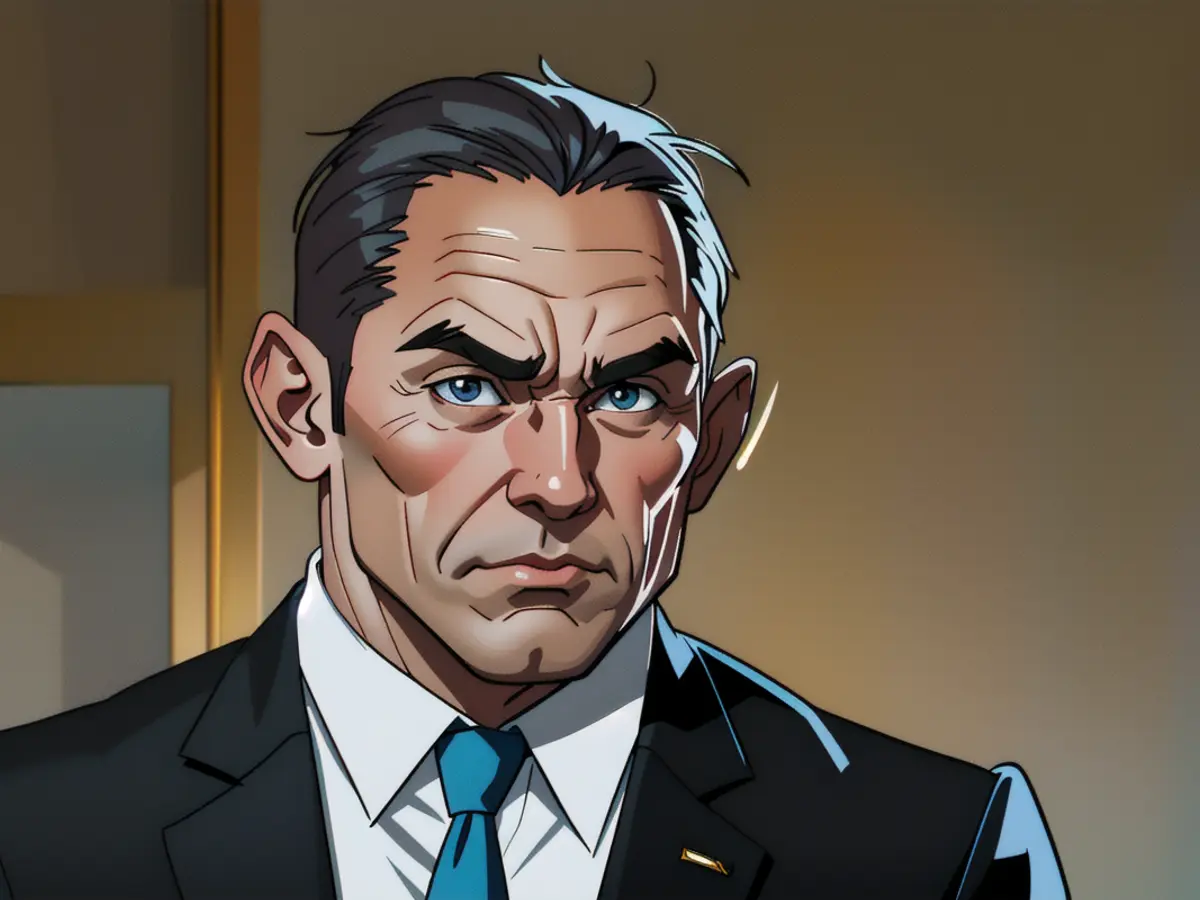U.K.'s Starmer advises Putin against manipulating the Ukraine truce, discussed prior to crucial meeting
Keir Starmer, the UK Prime Minister, has warned that Russian President Vladimir Putin mustn't toy around with the US-proposed ceasefire agreement in Ukraine. This stern statement was made before a significant meet-up of European leaders.
Starmer is hosting a gathering on Saturday of the "coalition of the willing," a group of Western nations who have pledged to safeguard Ukraine from Russian aggression, given the uncertain and dwindling support from the US.
The recent acceptance of a 30-day truce in Ukraine by Kyiv, which was endorsed by US President Donald Trump, received a vague response from Moscow. Putin seemingly agreed with the proposal, yet he also pointed out that the deal wasn't completed.
In anticipation of Saturday's virtual summit, Starmer accused Putin of attempting to prolong the ceasefire proceedings, stating, "The world needs to witness action, not analysis or hollow rhetoric and arbitrary conditions."
Starmer plans to pressure European and NATO allies during the talks to intensify economic sanctions on Russia and force Putin to engage in negotiations. He also intends to inform his counterparts about the importance of monitoring the ceasefire to guarantee its longevity.
Ukrainian President Volodymyr Zelensky is expected to be present at the "coalition of the willing" meeting, representing countries willing to uphold a deal in Ukraine and maintain peace after three years of war.
This coalition encompasses a wide range of nations, including European states, the EU Commission, NATO, Canada, Australia, New Zealand, and more.
Starmer calls on allies to prepare to support a sustainable and lasting peace in Ukraine and to continue enhancing their military support to Ukraine to shield them against intensifying Russian attacks.
Europe has demonstrated remarkable unity in the face of the Trump administration's challenges to the transatlantic alliance; however, there are underlying disagreements among European nations over whether they are willing to dispatch troops to Ukraine to maintain peace.
Donald Trump revealed that he received "promising news" about a potential ceasefire between Russia and Ukraine on Friday, without specifying details. He also mentioned that his administration would acquire more information on the US-proposed temporary ceasefire by Monday.
Putin recently held discussions with US special envoy Steve Witkoff in Moscow, which US Secretary of State Marco Rubio deemed cause for cautious optimism.
With Ukraine seemingly losing control of the western Russian region of Kursk, some suspect that Putin might be delaying talks on the ceasefire proposition until the region is firmly under Russian control.
Meanwhile, the aerial bombardments persist. Russia launched 178 drones and two ballistic missiles at Ukraine overnight, resulting in the death of at least two people and injuring 44, according to Ukrainian authorities. Another two were killed in the Kherson region when Russia targeted critical infrastructure and residential buildings, damaging seven high-rise buildings and 27 houses.
Russia's Defense Ministry reported that its air defenses had neutralized 126 Ukrainian drones during the same period, neglecting to mention how many drones breached their defenses.
On the negotiating table, there are several complexities, including Ukraine's desire for long-term security guarantees, Russia's potential benefits from a ceasefire, and the involvement of international parties. While an agreement may be reached, its success hinges on Putin's sincerity and the unity of the European nations.
- Keir Starmer, the UK Prime Minister, emphasized the importance of Russian President Vladimir Putin honoring the US-proposed ceasefire agreement in Ukraine, expressing his concern during a meeting with world leaders in Europe.
- During the upcoming virtual summit, Starmer, along with other European leaders, plans to urge their allies to strengthen economic sanctions on Russia, intensify military support to Ukraine, and monitor the ceasefire's implementation to ensure its longevity.
- Marco Rubio, the US Secretary of State, expressed cautious optimism about the recent discussions between Putin and US special envoy Steve Witkoff, but noted that Russia's prevarications and delaying tactics could potentially jeopardize the ceasefire proposition.





